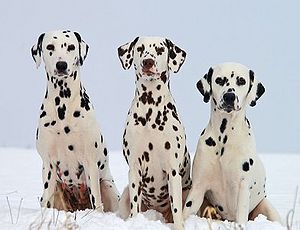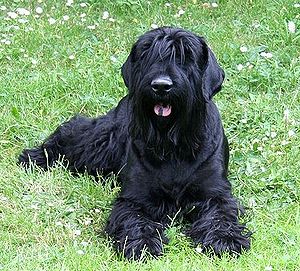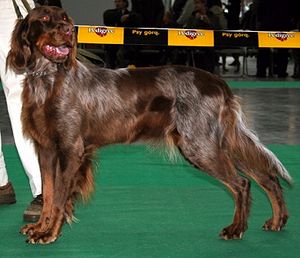 |
| Vital Statistics: |
| Place of Origin: Croatia |
| Group: Sporting dog, Gun dog |
| Height: males 22-24 in., females 20-22 in. |
| Weight: 55 lbs. |
| Life span: 12-14 yrs. |
| Trainability: moderate |
| Good with children: yes, but supervise with toddlers |
| Good with other pets: yes with early socialization |
The Dalmatian is an ancient breed, even found in Egyptian bas-relief and Hellenic friezes. There is a question as to the Dalmatian’s origin, is it Yugoslavia, Croatia or England? It doesn’t matter, it’s just such an elegant looking dog.
What does the Dalmatian look like?
The Dalmatian is 20-24 inches tall and about 55 lbs. The coat is short and hard and since it sheds a lot, should be brushed often. Ears are soft and carried against the head. Eyes are black, brown, blue or yellowish with a loving expression. The coat colors are a base coat of white with black, brown, yellowish, or dark blue spots. Puppies are born white, but soon acquire their spots.
What is the Dalmatian’s temperament?
This is a dog with a long memory and will remember for years if it is treated badly. The Dalmatian is extremely sensitive and needs human companionship to avoid melancholia. The Dalmatian loves children and enjoys romping with them. It can be aggressive with strange dogs and should be socialized early. If Dalmatians are not trained with a firm, consistent but gentle hand they can have behavior problems such as undue nervousness. The Dalmatian needs lots of activity and loves attention.
What are the Dalmatian’s uses?
The Dalmatian was a carriage dog in the 1800s, running alongside the carriage and then guarding the carriage and horses when standing still. Check a fire engine as it passes by and you might see a Dalamatian riding high. They are known as mascots of firemen. And of course, they are actors too, remember “101 Dalmatians”? They have been used as shepherds as well. These days the Dalmatian is a great companion dog.
Possible Health Issues
About 12% of Dalmatians are born deaf, those with blue eyes being more prone to deafness. Urinary tract stones, allergies, eye problems, laryngeal paralysis
- American Cocker Spaniel
- Boykin Spaniel
- Bracco Italiano
- Brittany Spaniel
- Chesapeake Bay Retriever
- Clumber Spaniel
- Curly-coated Retriever
- English Setter
- English Springer Spaniel
- German Shorthaired Pointer
- Gordon Setter
- Irish Red & White Setter
- Japanese Akita Inu
- Kai Ken Dog
- Karelian Bear Dog
- Labrador Retriever
- Lagotto Romagnolo
- Llewellyn Setter
- Mountain Cur
- Nova Scotia Duck Tolling Retriever
- Picardy Spaniel
- Pudelpointer
- Russian Spaniel
- Spinone Italiano
- Vizsla
- Weimaraner
- Welsh Springer Spaniel
- Welsh Terrier
- Wetterhoun
- Wirehaired Pointing Griffon
- Wirehaired Vizsla
- American Cocker Spaniel
- Barbet
- Boulet Griffon
- Boykin Spaniel
- Bull Terrier
- Clumber Spaniel
- Curly-coated Retriever
- English Cocker Spaniel
- English Setter
- English Springer Spaniel
- Flat-coated Retriever
- German Shorthaired Pointer
- Golden Retriever
- Gordon Setter
- Harrier
- Irish Setter
- Irish Water Spaniel
- Kishu Inu
- Kooiker Hound (Kooikerhondje)
- Labrador Retriever
- Lagotto Romagnolo
- Landseer
- Mountain Cur
- Nova Scotia Duck Tolling Retriever
- Otterhound
- Picardy Spaniel
- Poodle
- Pudelpointer
- Redbone Coonhound
- Redtick Coonhound
- Rhodesian Ridgeback
- Spinone Italiano
- Stabyhoun
- Sussex Spaniel
- Telomian
- Treeing Tennessee Brindle
- Vizsla
- Weimaraner
- Welsh Springer Spaniel
- Wirehaired Pointing Griffon
- Wirehaired Styrian Mountain Hound
- Wirehaired Vizsla



